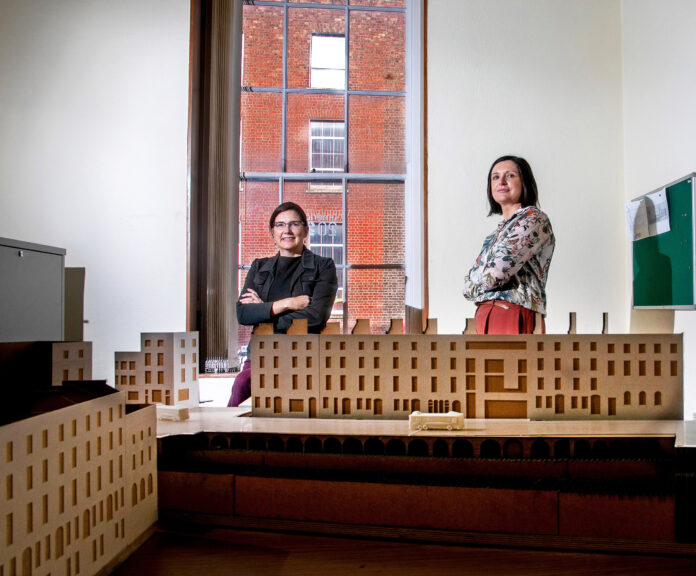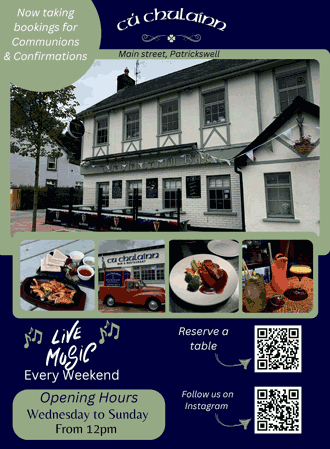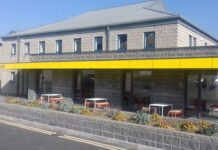
TWO demonstration projects will help create a model for transforming buildings in Limerick’s Georgian Quarter into modern living spaces.
Working in collaboration with Limerick City and County Council’s Urban Innovation Department, Limerick Twenty Thirty will project manage the two ‘pathfinder projects’ for the local authority as a roadmap for new residential living in the city’s historic Georgian core.
Funding has been provided under the Urban Regeneration Development Fund (URDF) for the redevelopment of 58, O’Connell Street and 33/34, Thomas Street into imaginative, predominantly living spaces. Over the course of a two-year programme, they will be transformed from largely disused spaces into exemplars of best practice in adaptive reuse of historic buildings.
The programme will focus on marrying the special architectural heritage of the properties with modern living needs but with a strong focus on sustainability. The programme will also devise new investment models to demonstrate and deliver affordable living in the city centre.
58, O’Connell Street is a four-storey over basement Georgian terraced townhouse and rear garden lot on the city’s main thoroughfare. The core building and a newer three-storey extension to the rear was home to the Limerick City Library from the 1930s-1990s.
The property currently houses ‘Narrative 4’, a not-for-profit social enterprise that will continue to be accommodated in the Georgian townhouse. The upper floors of the historic building are currently disused, as is the three-storey rear extension.
33, Thomas Street is a four-storey over basement Georgian terraced townhouse adjacent to a two-storey contemporary building which was the former site of a Fire Station.
Both properties, which comprise approximately 965 m2, are fully vacant but in a state of poor repair.
The programme was welcomed by Mayor Michael Collins, who said the two projects could pave the way for how significant swathes of Georgian Limerick could be transformed into vibrant living spaces and attract more people back to live in the city centre.
“Georgian Limerick has the potential to be a huge asset. If we maximise this opportunity for Limerick and it’s rolled out across the city centre, it will become one of the most sought-after urban spaces to live in Ireland. That’s the level of opportunity here.”
Said Rosie Webb, Head of Urban Innovation in Limerick City and County Council: “This is a really exciting programme. We are on the cusp of something very special in Limerick as we begin re-imagining and adapting our city centre living spaces and, not least, our Georgian properties.
“At a practical level, with these two projects we will be putting in place a significant stock of new accommodation in the city centre so that’s a huge positive in its own right.
“However, this programme goes well beyond that in terms of significance. Limerick has the second largest Georgian footprint in Ireland after Dublin and we have failed to realise its potential over the years.
“These projects will act as a model for revitalising this wonderful and hugely important stock of Georgian properties. The Georgian neighbourhood has the potential to be Limerick’s prime location for living and working and we are creating that opportunity now.”
Limerick Twenty Thirty chief executive David Conway said they were excited to be project managing the redevelopment of the two sites.
“We will be transforming these historic buildings into something fit for purpose for modern living. These will be very exciting living spaces that embrace city living in an economically inclusive and sustainable way. They are going to help breathe new life back into the core of the city.”
Limerick Twenty Thirty Project manager Sinead Ryan said the city’s Georgian architecture is known and appreciated the world over.
“With advancements around sustainability in building, there’s an opportunity to look at new ways of adapting historic properties for modern living. We are in the very early stages of the process but the residents who get the keys to these properties on completion will be stepping into exciting and unique living spaces.”
Limerick Twenty Thirty has recently concluded the procurement process for an Architect led Integrated Design Team with the appointment of Paul Keogh Architects. Planning will be sought in the mid-2021 and construction is expected to start shortly afterwards.









